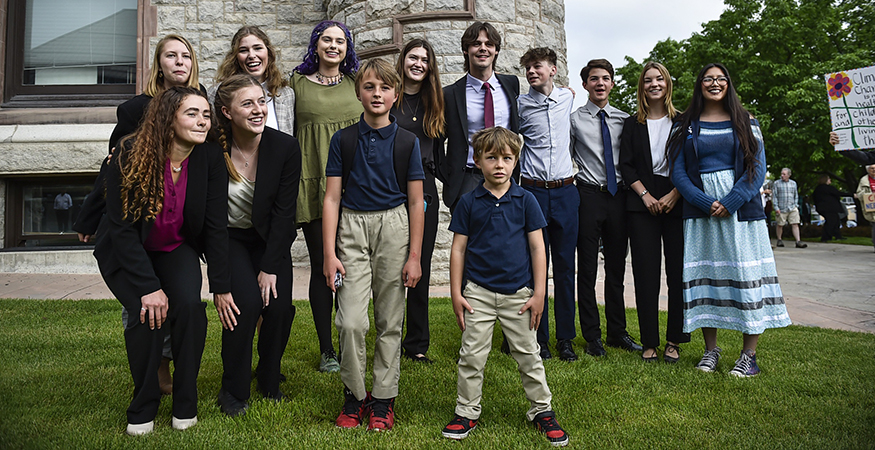16 Montana Youth, ages ranging from 5 to 19, are suing Montana for violating its constitutional obligation to fight and protect against climate change. The Montana Constitution directly states that its citizens have the right to a “clean and healthful environment.”
Held v. Montana is the first of its kind, and the judge will hear the argument that Montana has placed the success of the fossil fuel industry over the concern for the future of their environment and climate. The outcome of the statement lawsuit could have a direct impact on the efforts made by Montana and other states on climate change in the future.
Montana, home to gorgeous landscape and treasured National Parks, is also home to the largest coal reserves in the United States. For economic exploitation, Montana’s legislators have neglected environmental protection in favor of benefiting the fossil fuel industry. In addition, they have enacted measures for the purpose of steering regulators such as the Montana Department of Environmental Quality away from reviewing climate impacting projects including power plants and coal mines.
The young Plaintiffs are represented by Our Children’s Trust, a nonprofit law firm, well versed in representing youth in climate-change-related lawsuits.
The way that climate change has had a detrimental impact on their lives and the lives of other people is an aspect that the plaintiffs plan on testifying. The increase in global temperatures have limited their ability to do the things they love and shape the course of their futures.
15-year-old, Badge Busse sentimentally told Montana Public Radio, “It’s hard to watch the things that I love get depleted slowly, like fishing with my dad. It’s like, my main way to hang out with him and my brother.”
Climate change is said to have a substantial effect on Montana’s climate over the next few decades. According to an Environmental Protection Agency report in 2016, there is expected to be a “decrease in availability of water in Montana, affect agricultural yields, and increase the risk of wildfires.” In addition, the changing climate poses a threat to Montana’s treasured glaciers.
Whether judgement declares a violation of the state Constitution, the court does not have the authority to tell the government to take action. Therefore, there is no guarantee that measures will be taken to correct the previous actions of the state, even if the young plaintiffs win the lawsuit. Despite the outcome of the lawsuit, the Montana state government will not be required to address climate change.










